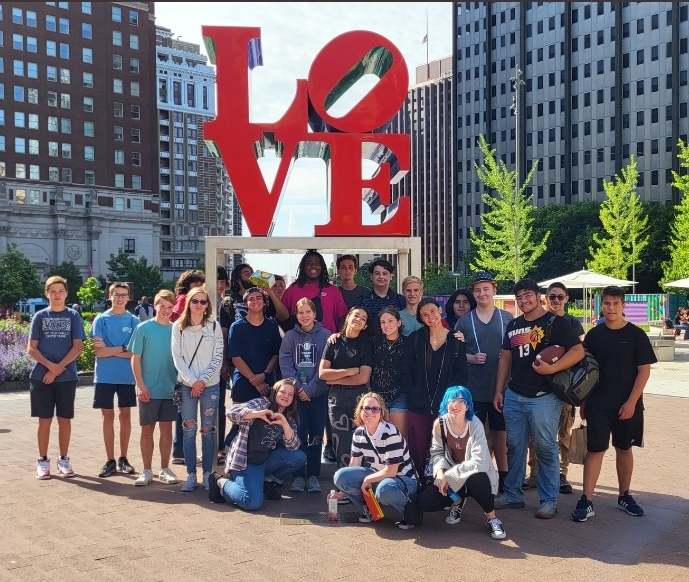OHS boasts a plethora of clubs and organizations within its walls. Many clubs are for hobbies or niche interests, and many more are for academics, but one that is commonly left out of that conversation is the Academy.
The Academy of Civic Engagement and Advanced Studies, or as most students and teachers call it, the Academy, is an organization that once used to lean more towards the history side of academics, as it was formerly named The Academy of American Studies. If the name change was not enough to suggest, the Academy now is quite different from what it was when it came to OHS in 2009.
“Originally, when it started out, [it] was geared towards history and civics education…over time, we found that we were getting students less interested in history and more interested in politics or were in gifted classes,” said Tiffany Ellis, AP U.S. History and Human Geography teacher.
At the core of the program are several advanced classes- AP Human Geography and Honors English and Biology for freshmen, Honors Chemistry, AP World History, and Honors English for sophomores, AP English Language and Composition and AP United States History for juniors, and AP Gov. and Econ. as well as AP Literature for seniors- and the history aspect of it virtually splits the program into halves.
“There’s really two components to the program; students have to take a series of honors and AP classes that cross over a whole bunch of different subjects, so they get a well-rounded education, but there’s a civic engagement component to it as well,” said Amanda Schlueter, Academy co-director.
That civic engagement component can take several forms, both inside the classroom and out.
“We have long-term projects on Canvas, the latest one in the fall/winter semester was an emphasis on the local, state, national, and worldwide level, and we had to pinpoint issues [based] on those four criteria, and we had to find solutions to those problems… the other part of it is obviously the experiential learning, the field-work aspect… we go to Crow Canyon, we take mini field trips…” said John Zeng, Senior and Academy President.
The Academy is currently in a sort of transitional period, blurring the lines between a club and organization. On one hand, it promotes the elaboration of topics learned in American history, which would be a more club-like attribute, but it also incorporates non-history classes into the program, something more like what an academic organization, not a history club, would do.
“We do more things that are a little bit more formal than a club, which makes us more of an organization, but recently, because we’ve had new directors, this year we’re more like a club,” Ellis said.
The new directors, Schlueter and Cross split their duties as co-directors, with Schlueter planning a sure-to-be incredible trip to Crow Canyon, Colorado, and Cross running the US2 and US4 Canvas courses.
“This summer we’re going to Crow Canyon, it’s an archeological site in Colorado and we’ll get to learn about how archeology is done; we’ll get to learn about the Pueblo peoples of the southwest from actual descendants of the Pueblo peoples of the southwest, and we’ll get to incorporate things like physics, museum studies, museum ethics… it all works together in the real world,” Schlueter said.
The US2 and US4 canvas courses are project-based online classes that Academy students take during their sophomore and senior years, where students get to choose a certain topic from American history to write about or make a presentation for.
“You had to write an essay about the Panic of 1819, or the Women’s Rights movement during the 1800’s… it forces you to actually research the stuff… [one of] mine was about Lewis and Clark’s expedition across the Great Divide, which was pretty interesting,” said Spencer Thompson, junior.
The Academy, aside from US2, US4, and their trips across the nation, also has several meetings for planning future trips and other activities.
“In the past [meetings] were about once or twice a month… we have breakfasts; they’ve had one this year; and we sometimes would do guest speakers in the past… we’ve done day-trips… we have an Academy banquet at the very end where parents and students put on dinner…” Ellis said.
The Academy promotes advanced education in all fields; the four year program requires students to take certain AP and Honors courses throughout their high school career, and many of the students stay grouped together in these classes over the years.
“Especially freshman year, it was really nice to be in a class where you could see the same people over-and-over again, and you could really get to know them…with the Academy, where we all have similar goals and similar interests, it was really easy to connect…” Zeng said.



